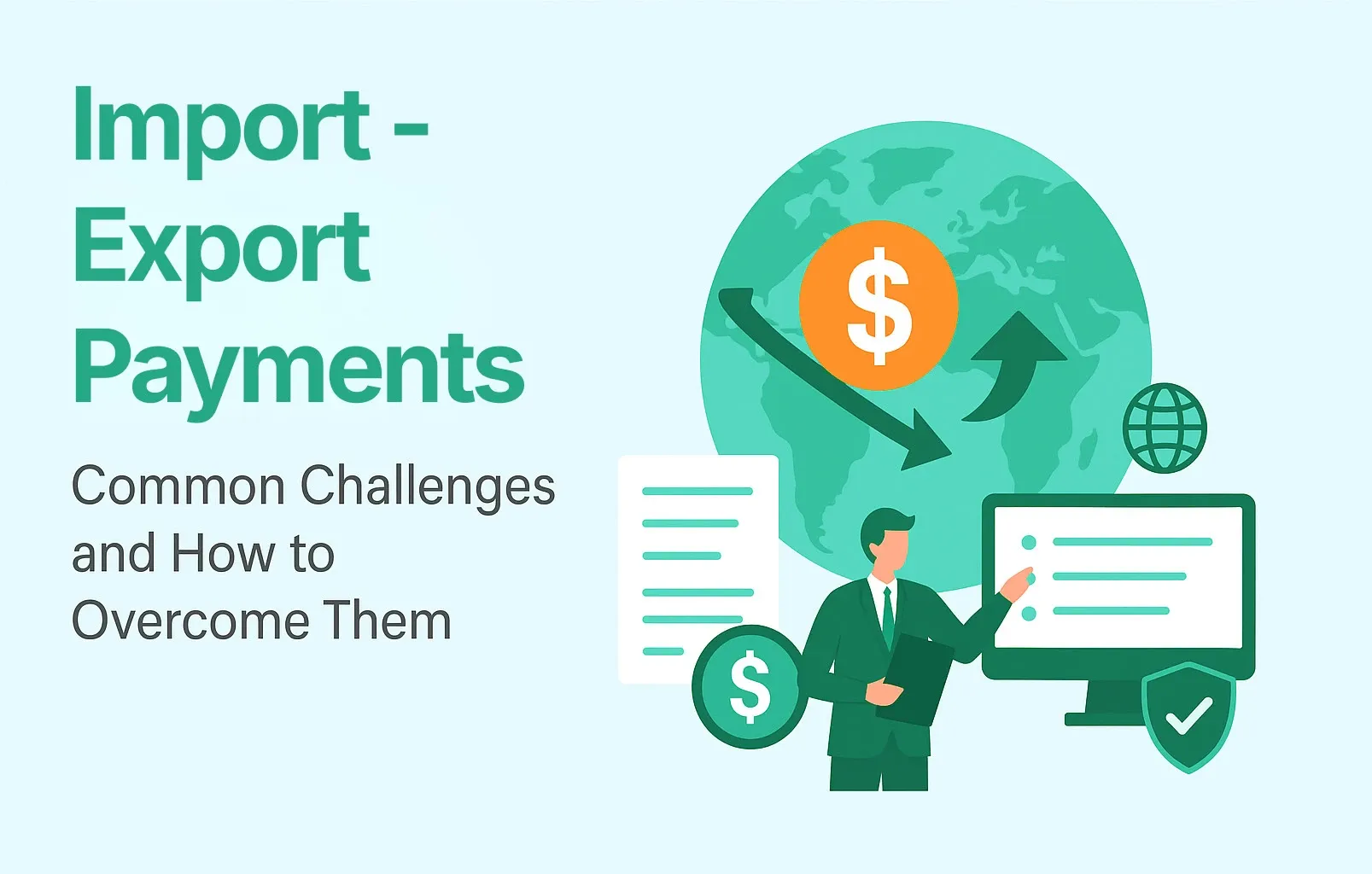Export-Import Payments: Common Challenges and How to Overcome Them
Discover common challenges in export-import payments—hidden fees, currency risks, fraud—and learn practical ways to overcome them for smoother global transactions

Export-import payments can be very highly lucrative; then again, they also have drawbacks. As the business goes international, it faces several barriers that make the flow of transactions a challenge for it. From there, the current article seeks to go deeper and explain other problems affecting export-import payments and how they can be tackled practically. Across different borders, they are met with several challenges that may hinder the transactions flowing smoothly. This article has dived deeper into the common issues related to export-import payments and practical ways of overcoming them.
Understanding Export Import Payments
Export-import payments are payments involving foreign buyers and sellers. Export-import payments may come in many shapes and forms, such as cash in advance, letters of credit, and open accounts. Such methods encourage international trade, but they also bring several complexities regarding fees and regulations, not to mention security.
Common Challenges in Export Import Payments
- Hidden Fees: The challenge of extra charges has remained one of the most prevalent barriers in export-import payments. The reality is that many companies remain inexperienced in terms of extra fees like transferring fees, bank charges, and intermediary bank fees. Such fees may be offset considerably and can easily affect the overall net income.
- Exchange Rate Fluctuations: Fluctuations in exchange rates impact the cost difference in international business activities that involve physical products. This exposes exporters and importers to the risk where, in the exchange of value from the initiation of an effort intended for payment up to the time of completion, the exchange rate shifts in a way that is adverse to both parties.
- Payment Tracking Issues: In contrast to domestic dealings, tracking international payments often proves to be a problem. There are likely to be issues of uncertainty and dispute with regard to payment by buyers because exporters may be faced with difficulties in determining whether payment has been made.
- Payment Identification Difficulties: The exporters find it problematic to identify incoming payments since there is usually inadequate information regarding the payer when depositing money. Delays in account reconciliations and cash flows will be affected if account reconciliations are delayed.
- Limited Payment Options for Importers: The traditional modes of payment, like wire transfers, do not prove to be convenient and cost-effective for many importers. Then there would be a delay because all the modern modes of payment are not included.
- Fraud Risks: Fraud risk generally increases with international trade participation. Anti-money laundering regulations combined with other secure forms of payment minimize fraud risk.
Tips for Overcoming Challenges in Export Import Payments
- Choose a Transparent Payment Provider: Selecting a reliable payment provider is crucial for minimizing hidden fees associated with export-import payments. Look for providers that offer transparent pricing structures and clearly outline all potential charges upfront. This will help you avoid unpleasant surprises during transactions.
- Utilize Forward Contracts for Currency Risk Management: To mitigate the impact of exchange rate fluctuations, consider using forward contracts. These contracts allow you to lock in a specific exchange rate for future transactions, providing predictability in costs and protecting your margins from adverse currency movements.
- Implement Payment Tracking Solutions: Investing in payment tracking solutions can enhance visibility throughout the transaction process. Many modern payment platforms offer real-time tracking features that allow both exporters and importers to monitor payment statuses, reducing uncertainty and improving communication.
- Enhance Payment Identification Processes: To streamline payment identification, consider implementing unique reference numbers or codes for each transaction. This will facilitate easier reconciliation of incoming payments and improve overall cash flow management.
- Explore Diverse Payment Options: Encourage your importers to explore various payment methods beyond traditional wire transfers. Options such as credit cards, e-wallets, or blockchain-based solutions can provide greater flexibility and speed in completing transactions.
- Strengthen Fraud Prevention Measures: To combat fraud risks associated with export-import payments, ensure that you implement robust security measures. This includes using secure payment gateways, conducting thorough due diligence on new partners, and staying informed about compliance requirements in both exporting and importing countries.
Final Thoughts
Export-import payments pose challenges, but proactive steps can address them. Transparent payment providers, forward contracts for currency risk management, and enhanced tracking processes streamline international transactions. Diverse payment options and fraud prevention measures safeguard business interests. Staying vigilant and adapting to the global trade landscape maximizes growth opportunities.